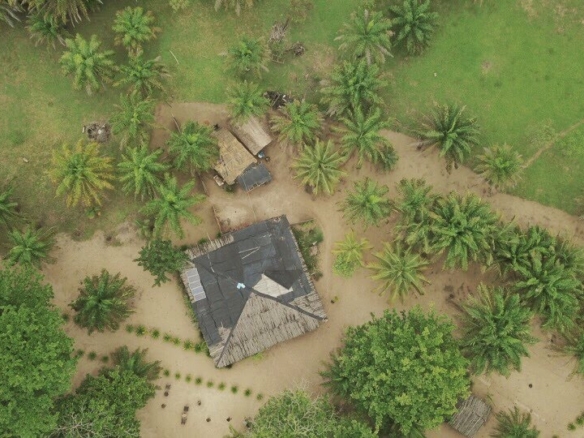Land disputes in Ghana represent one of the most persistent challenges facing property investors, accounting for a staggering 59% of all court cases in 2025. With recent violent conflicts displacing nearly 50,000 people and new cases rising by 25% annually, the need for innovative solutions has never been more critical. Fortunately, Ghana is pioneering a technological revolution that promises to transform land ownership from uncertainty into security.
Why Do Land Disputes Continue to Plague Ghana?
The roots of Ghana’s land crisis stem from decades of inadequate record-keeping and systemic failures. Multiple sales of identical parcels have become endemic, with Ghana’s Supreme Court expressing shock at “chaotic and confusing” land records. In one landmark case, 13 different sellers were registered for the same 50-acre tract between 1984 and 2014.
The complexity arises from Ghana’s dual land tenure system, where 80% of land remains under customary ownership whilst formal registration processes create conflicts between traditional authorities and statutory requirements. Poor documentation enables fraudulent sales where individuals sell land they don’t legally own, creating a web of competing claims.
With only Greater Accra and Kumasi having comprehensive title registration systems after 25 years of implementation, most regions still rely on less secure deed registration systems. This patchwork approach leaves property buyers vulnerable to disputes that can drag on for years in court.
How Is Technology Revolutionising Land Administration?
Ghana’s digital transformation is gaining momentum through the Ghana Enterprise Land Information System (GELIS), now operational in seven regions. This integrated platform unifies all four divisions of the Lands Commission into streamlined digital workflows, dramatically reducing processing times and human error.
The game-changing development is the Continuous Operating Reference System (CORS) Network, launched in August 2025. This network of 52 GPS stations provides real-time centimetre-level accuracy for land surveys nationwide, with expansion to 100 stations planned by year-end. This technology eliminates boundary disputes caused by inaccurate measurements whilst aligning Ghana with international surveying standards.
An ambitious $85 million private partnership launching in 2025 will accelerate digitalisation over five years. This comprehensive project includes creating a national digital base map, automating business processes, and establishing a unified Land Information System covering the entire country.
Blockchain technology is entering pilot phases through innovative companies, creating tamper-proof land records that enhance transparency. The Lands Commission’s online portal now allows citizens to submit applications, track progress, and verify documents remotely, bringing convenience to what was once a bureaucratic nightmare.
What Legal Protections Safeguard Your Investment?
The Land Act 2020 provides Ghana’s most robust legal framework for dispute prevention. Key protections include criminalising land guard activities with 5-15 years imprisonment, mandatory Alternative Dispute Resolution before court proceedings, and enhanced fiduciary obligations for traditional authorities.
Title registration offers the highest security through government-backed indefeasible title, though availability remains limited to Greater Accra and parts of Ashanti Region. In other areas, deed registration provides documented proof of transactions but offers less security than title certificates.
Professional due diligence requires engaging licensed experts: a Ghana Bar Association lawyer for legal searches and document preparation, plus a Ghana Institution of Surveyors member for certified site plans. Comprehensive searches at the Lands Commission verify ownership history and identify potential disputes or encumbrances before purchase.
How Do Combined Technologies Reduce Fraud and Increase Transparency?
Ghana’s dual approach of digital innovation and legal reform creates unprecedented transparency. Automated land title certificates eliminate manual errors, whilst digital audit trails track every transaction from application to completion.
The CORS Network ensures survey accuracy, preventing boundary disputes that traditionally fuel conflicts. Customary Land Secretariats have resolved over 250 disputes through Alternative Dispute Resolution, demonstrating how technology-supported traditional systems work effectively.
Digital records scanning and geo-referencing create permanent, searchable databases preventing document manipulation. Real-time transaction tracking allows monitoring application progress, whilst Ghana Card system integration provides identity verification reducing fraud opportunities.
Your Secure Path Forward
Individual buyers should engage qualified professionals early, conduct comprehensive due diligence including official searches, and structure payments carefully with bulk payment only after clearance. Ghana Property Finder’s professional network connects you with verified lawyers and surveyors ensuring secure transactions.
Developers must obtain Regional Lands Commission consent for large-scale projects, conduct environmental assessments, and verify planning compliance. Professional insurance provides additional protection against title defects.
Communities can establish Customary Land Secretariats to document traditional land rights and resolve disputes through ADR mechanisms before escalation.
By 2030, Ghana aims to complete nationwide digitisation where every parcel has GPS coordinates, blockchain-secured records, and mobile access for citizens. Success indicators from pilot programs show measurable improvements: deed registration reduced from three months to two, title registration from twelve months to five.
Land disputes in Ghana are declining where technology and proper legal frameworks converge, creating the foundation for secure property investment and sustainable development across the nation.






